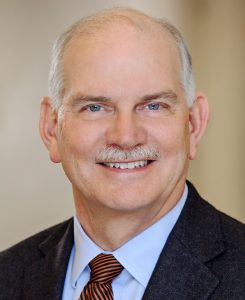NAE Member H. Vincent Poor to Deliver New Horizons in Engineering Distinguished Lecture

The New Horizons in Engineering Distinguished Lectureship Series at Clarkson University is proud to announce that Princeton University Professor H. Vincent Poor will speak on “Smart Grid: Energy Meets Information,” on Friday, October 12, at 2:30 p.m. in Clarkson’s Bertrand H. Snell Hall Room 213 (#20 on the map at http://www.clarkson.edu/about/clarkson_map.pdf).
A reception will precede the lecture at 2:00 p.m. The event is free and open to the public.
Requirements for the distribution of electric power are changing rapidly because of renewable energy resources and heightened concerns over security and reliability.
The smart grid involves the imposition of a cyber layer of sensors, communication networks, and controls, atop the physical layer of the electric power grid, in order to improve the efficiency, reliability, and security of the grid, and to enable the integration of renewable energy sources and greater consumer participation in grid management.
The resulting cyber-physical nature of the power delivery system opens the door for the application of a number of tools from the information sciences in this setting, including optimization, game theory & control; communications, networking & information theory; and statistical inference, machine learning & signal processing.
Poor’s distinguished lecture will provide an overview of this area, illustrated with examples from recent research in the field.
Poor is the Michael Henry Strater University Professor of Electrical Engineering at Princeton University, where he has been on the faculty since 1990. From 1977 until 1990, he was on the faculty of the University of Illinois, and during 2006 to 2016, he served as Dean of Princeton’s School of Engineering and Applied Science. He has also held visiting appointments at several other universities, including most recently at Berkeley and Cambridge. His research interests are primarily in the areas of information theory and signal processing, with applications in wireless networks, energy systems and related fields. Among his publications in these areas is the recent book
Information Theoretic Security and Privacy of Information Systems (Cambridge University Press, 2017).
Dr. Poor is a member of the National Academy of Engineering and the National Academy of Sciences, and is a foreign member of the Chinese Academy of Sciences, the Royal Society, and other national and international academies. He currently serves on the boards of several non-profit organizations, including the Corporation for National Research Initiatives, the IEEE Foundation, the National Academy of Engineering, and Swarthmore College. Recent recognition of his work includes the 2016 John Fritz Medal, the 2017 IEEE Alexander Graham Bell Medal, and honorary doctorates and professorships from several universities, including a D.Sc. honoris causa from Syracuse in 2017.
Poor received his Ph.D. in electrical engineering & computer science and M.A. in electrical engineering from Princeton University, and his M.S. in electrical engineering and B.E.E. from Auburn University.
He will be the 17th Distinguished Lecturer in Clarkson University’s New Horizons in Engineering series, which is dedicated to improving the understanding of important issues facing engineering and society in the 21st century.
For more details, please contact Distinguished Research Professor of Engineering Liya Regel, New Horizons in Engineering founder and chair, at lregel@clarkson.edu.
Clarkson University educates the leaders of the global economy. One in five alumni already leads as an owner, CEO, VP or equivalent senior executive of a company. With its main campus located in Potsdam, N.Y., and additional graduate program and research facilities in the New York Capital Region, Beacon, N.Y., and New York City, Clarkson is a nationally recognized research university with signature areas of academic excellence and research directed toward the world’s pressing issues. Through more than 50 rigorous programs of study in engineering, business, arts, education, sciences and the health professions, the entire learning-living community spans boundaries across disciplines, nations, and cultures to build powers of observation, challenge the status quo, and connect discovery and innovation with enterprise.